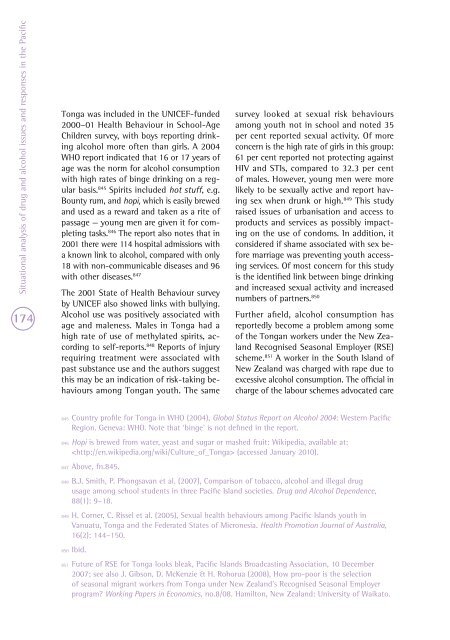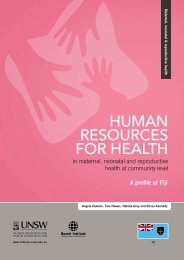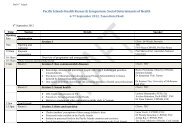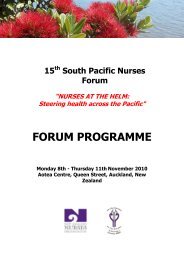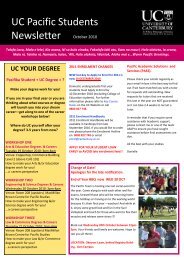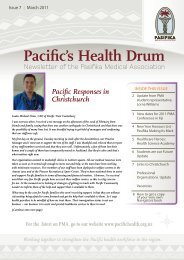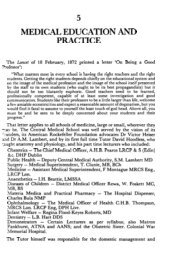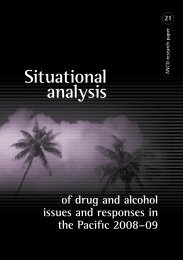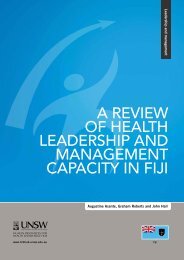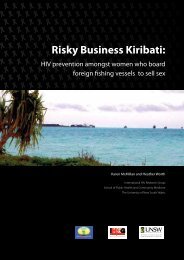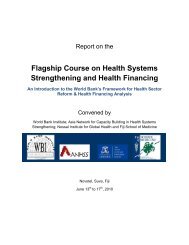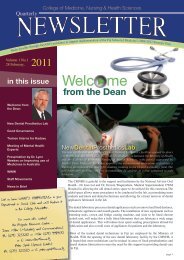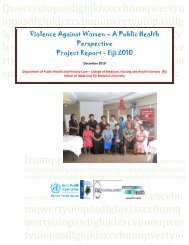rp21 situational analysis - Pacific Health Voices
rp21 situational analysis - Pacific Health Voices
rp21 situational analysis - Pacific Health Voices
Create successful ePaper yourself
Turn your PDF publications into a flip-book with our unique Google optimized e-Paper software.
Situational <strong>analysis</strong> of drug and alcohol issues and responses in the <strong>Pacific</strong><br />
174<br />
Tonga was included in the UNICEF-funded<br />
2000–01 <strong>Health</strong> Behaviour in School-Age<br />
Children survey, with boys reporting drinking<br />
alcohol more often than girls. A 2004<br />
WHO report indicated that 16 or 17 years of<br />
age was the norm for alcohol consumption<br />
with high rates of binge drinking on a regular<br />
basis. 845 Spirits included hot stuff, e.g.<br />
Bounty rum, and hopi, which is easily brewed<br />
and used as a reward and taken as a rite of<br />
passage — young men are given it for completing<br />
tasks. 846 The report also notes that in<br />
2001 there were 114 hospital admissions with<br />
a known link to alcohol, compared with only<br />
18 with non-communicable diseases and 96<br />
with other diseases. 847<br />
The 2001 State of <strong>Health</strong> Behaviour survey<br />
by UNICEF also showed links with bullying.<br />
Alcohol use was positively associated with<br />
age and maleness. Males in Tonga had a<br />
high rate of use of methylated spirits, according<br />
to self-reports. 848 Reports of injury<br />
requiring treatment were associated with<br />
past substance use and the authors suggest<br />
this may be an indication of risk- taking behaviours<br />
among Tongan youth. The same<br />
survey looked at sexual risk behaviours<br />
among youth not in school and noted 35<br />
per cent reported sexual activity. Of more<br />
concern is the high rate of girls in this group:<br />
61 per cent reported not protecting against<br />
HIV and STIs, compared to 32.3 per cent<br />
of males. However, young men were more<br />
likely to be sexually active and report having<br />
sex when drunk or high. 849 This study<br />
raised issues of urbanisation and access to<br />
products and services as possibly impacting<br />
on the use of condoms. In addition, it<br />
considered if shame associated with sex before<br />
marriage was preventing youth accessing<br />
services. Of most concern for this study<br />
is the identified link between binge drinking<br />
and increased sexual activity and increased<br />
numbers of partners. 850<br />
Further afield, alcohol consumption has<br />
reportedly become a problem among some<br />
of the Tongan workers under the New Zealand<br />
Recognised Seasonal Employer (RSE)<br />
scheme. 851 A worker in the South Island of<br />
New Zealand was charged with rape due to<br />
excessive alcohol consumption. The official in<br />
charge of the labour schemes advocated care<br />
845 Country profile for Tonga in WHO (2004), Global Status Report on Alcohol 2004: Western <strong>Pacific</strong><br />
Region. Geneva: WHO. Note that ‘binge’ is not defined in the report.<br />
846 Hopi is brewed from water, yeast and sugar or mashed fruit: Wikipedia, available at:<br />
(accessed January 2010).<br />
847 Above, fn.845.<br />
848 B.J. Smith, P. Phongsavan et al. (2007), Comparison of tobacco, alcohol and illegal drug<br />
usage among school students in three <strong>Pacific</strong> Island societies. Drug and Alcohol Dependence,<br />
88(1): 9–18.<br />
849 H. Corner, C. Rissel et al. (2005), Sexual health behaviours among <strong>Pacific</strong> Islands youth in<br />
Vanuatu, Tonga and the Federated States of Micronesia. <strong>Health</strong> Promotion Journal of Australia,<br />
16(2): 144–150.<br />
850 Ibid.<br />
851 Future of RSE for Tonga looks bleak, <strong>Pacific</strong> Islands Broadcasting Association, 10 December<br />
2007; see also J. Gibson, D. McKenzie & H. Rohorua (2008), How pro-poor is the selection<br />
of seasonal migrant workers from Tonga under New Zealand’s Recognised Seasonal Employer<br />
program? Working Papers in Economics, no.8/08. Hamilton, New Zealand: University of Waikato.


